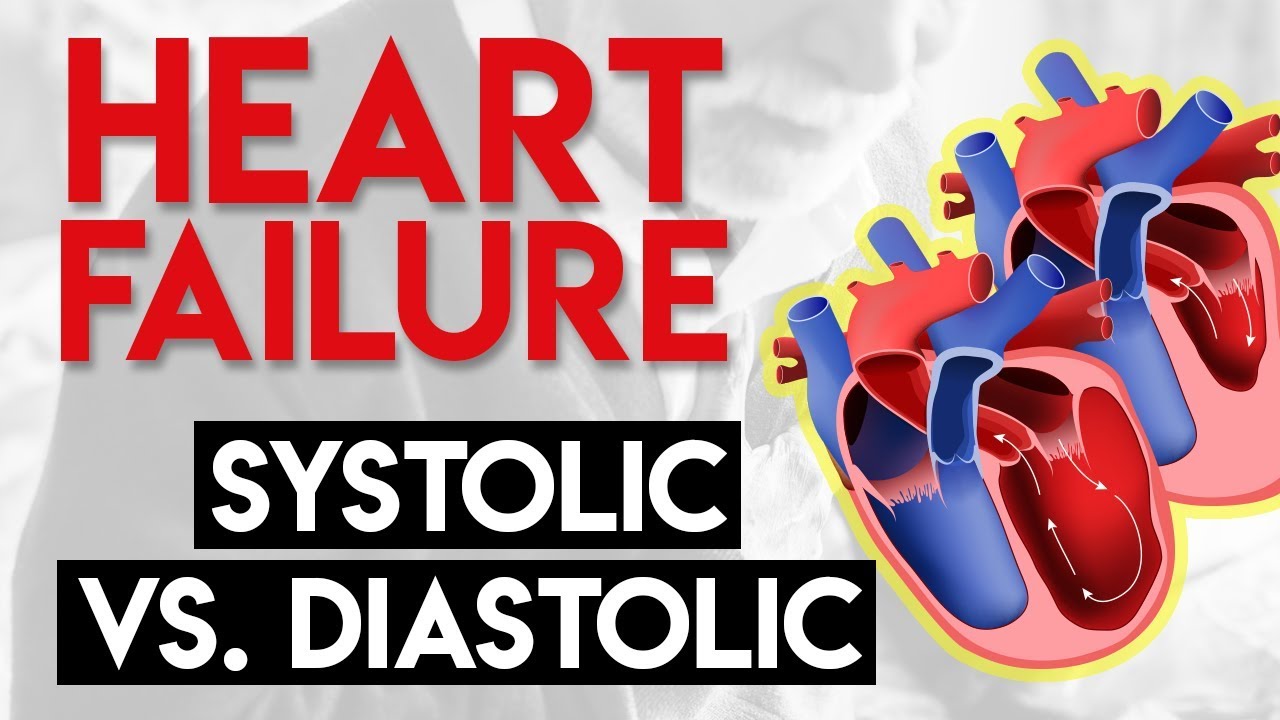Systolic Heart Failure Causes, Symptoms, and Management
Welcome to our comprehensive guide on systolic heart failure, a condition that affects millions of individuals worldwide. In this article, we’ll delve deep into the intricacies of systolic heart failure, from its causes and symptoms to diagnosis and treatment options. Whether you’re newly diagnosed or seeking to understand this condition better, you’ve come to the right place.

Deciphering Systolic Heart Failure: What You Need to Know
Systolic heart failure is a complex cardiac condition that impacts the heart’s ability to pump blood effectively. To comprehend this condition fully, we’ll break down the mechanics of the heart, focusing on the role of the left ventricle and the importance of ejection fraction. By the end of this section, you’ll have a clear understanding of how systolic heart failure affects the heart’s pumping function.
Uncovering the Underlying Factors: Causes and Risks of Systolic Heart Failure
Systolic heart failure doesn’t develop in isolation—it often has underlying causes and risk factors. In this section, we’ll explore the conditions and lifestyle factors that can lead to systolic dysfunction. From coronary artery disease to hypertension and cardiomyopathy, understanding these contributors is vital for early detection and prevention.
Detecting Systolic Heart Failure: Recognize the Red Flags
Early recognition of systolic heart failure symptoms is crucial for timely intervention. In this section, we’ll discuss the telltale signs, including shortness of breath, fatigue, and swollen ankles. By understanding these symptoms, you can take proactive steps toward seeking medical attention and managing your heart health.
Unveiling Systolic Heart Failure: Diagnosis and Key Tests
When it comes to systolic heart failure, accurate diagnosis is the first step toward effective management. We’ll walk you through the diagnostic process, from physical examinations to crucial tests like echocardiograms and B-type natriuretic peptide (BNP) blood tests. Understanding these tests is vital for a precise diagnosis and tailored treatment plan.
Managing Systolic Heart Failure: Effective Treatment Approaches
Effective management of systolic heart failure involves a multifaceted approach. In this section, we’ll explore treatment options, from medications like ACE inhibitors and beta-blockers to lifestyle modifications. Discover how these strategies work together to alleviate symptoms and improve your quality of life while living with systolic heart failure.
Empowering Your Heart: Lifestyle Changes for Systolic Heart Failure
A heart-healthy lifestyle plays a pivotal role in managing systolic heart failure. In this section, we’ll delve into dietary adjustments, exercise regimens, and sodium restriction—all tailored to support your heart’s well-being. Learn how these modifications can complement medical treatments and contribute to a healthier life.
Looking Ahead: Prognosis and Long-Term Outlook for Systolic Heart Failure
What does the future hold for those living with systolic heart failure? In this section, we’ll explore the prognosis and long-term outlook. By emphasizing the significance of early intervention and adherence to treatment, you can gain insights into how to optimize your quality of life while managing this condition.
Thriving Despite Systolic Heart Failure: Tips for Daily Life
Living with systolic heart failure can present challenges, but it’s also an opportunity to thrive. In this section, we offer practical tips and emotional support for individuals and caregivers. Discover how to navigate daily life, manage stress, and foster a positive outlook on your heart health journey.
Frequently Asked Questions (FAQs) About Systolic Heart Failure
1. What is systolic heart failure?
Systolic heart failure is a condition where the heart’s left ventricle doesn’t contract effectively, leading to reduced blood pumping and potential fluid buildup in the lungs and body.
2. What causes systolic heart failure?
Common causes include coronary artery disease, high blood pressure, heart attacks, and cardiomyopathy, which weaken the heart’s pumping ability.
3. What are the symptoms of systolic heart failure?
Symptoms include shortness of breath, fatigue, swollen legs, rapid heartbeat, and difficulty exercising.
4. How is systolic heart failure diagnosed?
Diagnosis involves physical exams, echocardiograms, B-type natriuretic peptide (BNP) blood tests, and other imaging tests.
5. Can systolic heart failure be prevented?
Prevention strategies include managing hypertension, maintaining a heart-healthy diet, exercising regularly, and quitting smoking.
6. What are the treatment options for systolic heart failure?
Treatment may include medications like ACE inhibitors and beta-blockers, lifestyle changes, and in some cases, medical devices or surgery.
7. What is the ejection fraction, and how does it relate to systolic heart failure?
Ejection fraction measures the heart’s ability to pump blood. In systolic heart failure, a reduced ejection fraction indicates impaired pumping function.
8. Can systolic heart failure be managed effectively?
Yes, with early diagnosis, treatment adherence, and lifestyle modifications, individuals can lead fulfilling lives despite systolic heart failure.
9. Are there support groups for systolic heart failure patients?
Yes, many support groups and online communities offer emotional support and shared experiences for individuals living with systolic heart failure.
10. What is the long-term prognosis for systolic heart failure patients?
The prognosis varies but can be improved with proper care. Early intervention and ongoing medical management play key roles in long-term outcomes.
Conclusion:
As we conclude this comprehensive guide on systolic heart failure, one thing remains clear: your heart health journey is both manageable and valuable. By understanding the condition, recognizing symptoms, and embracing a heart-healthy lifestyle, you can enhance your quality of life while living with systolic heart failure. Remember, early intervention and treatment adherence are your allies on this path to heart health.




